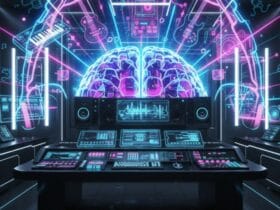Hello folks, In this blog, we will be looking at How Music Primes the Brain for Learning. Music lessons or learning to play any musical instrument can positively affect your brain development in many ways. This is not just a theory. It has been proven in a number of scientific studies and papers on the subject. Music has been proven to have a magical effect on human brain development (including logic and sensory perception abilities).
Even young children who have been given music lessons show changes in brain function: their listening and processing skills improve, which helps them to be more successful in their studies, for example. However, we don’t mean to say that all parents should give their children music lessons without thinking about their preferences. Forced instruction can also lead to negative results.
MUST READ – What Is The Musical Alphabet?
The effect of music on the brain
Let’s look at how learning music can improve and positively affect the development of a person’s nervous system.
Increased memory capacity
When a person starts listening to music or learning to play a musical instrument, their memory capacity usually increases. Studies show that if you constantly exercise and learn to play a musical instrument with notes (such as the piano), you will find that your brain function will improve. In addition, learning improves cognitive thinking and makes the brain lobes that control motor skills work more intensely.
Improves neural connections
According to research, musicians who have learned to play a musical instrument or rehearse constantly have an increased number of neural connections in the cerebellar body of the brain (the nerves that connect the cerebral hemispheres to each other). This increased number of neural connections results in parts of the brain being better connected to each other and able to perform visual and sensory synchronization actions much better than others. All of these effects are the result of the systematic training you do when learning to play a musical instrument.
Activates brain function
When you play or listen to music, certain chemical compounds are produced in your brain. Their stimulating effect makes your brain feel good and your brain function better. When you play or rehearse in a band or orchestra, the hormone oxytocin in your brain (often called the “trust module”) increases. Its effect allows us to create bonds with each other based on trust and kindness.
Effects on brain plasticity
Brain plasticity is related to the changes that occur in the brain over the years. It has been found that music strongly influences its development. Those who had studied music for many years and those who began practicing music at an early age were found to have an increased development of plasticity.
Learning music can lead to positive changes in brain structure over time, developing different primary auditory, visual, and cognitive skills. It has been noted that musicians who have had long training and lots of practice have higher brain plasticity. The same goes for writing, a skill that requires lots of practice and training to master. To improve your writing skills quickly and efficiently, one should consider hiring a cheap paper writing service. Working with an experienced writer can help you write better essays or papers faster, as they are trained in the craft of good writing.
Let your children learn music and you will see its effect on brain development
Various studies show that learning music has a huge effect on the lobes of the brain and can affect how you view ideas and objects around you. So what happens to a child’s brain? Scientific studies have proven that learning music before the age of 7, or at an early age, has the maximum effect on a person’s brain structure. By engaging your children in music lessons, you are fostering more intense brain development and can see the following positive results emerge:
- Improved sensory and visual skills.
- A sharp mind that develops faster with age.
- A well-functioning brain that can solve a variety of cognitive problems.
- Improved response to speech, language, and communication development.
- They exhibit a stronger interest in learning and play.
- They excel in subjects and majors related to computer technology, math, engineering, etc.
- This prevents memory loss as they age.
How to maximize the effect of listening to music
To derive the above benefits of brain development from playing a musical instrument, it is imperative that you observe the following conditions:
- You must understand the emotional message behind learning music.
- You must be interested; you must not be forced to learn music.
- You must pay close attention to the details and build an effective lesson strategy.
Conclusion
No doubt, learning music improves brain function, structure, and neural connections. Studies show that professional musicians have better brain development than those who have never studied music. Not only do they process sound information perfectly, and develop logical skills, sensory and motor skills, but they also have good coordination and connections with those who work with or around them.
However, individuals’ abilities, motivation, and interest in learning music can vary, and these levels will affect the brain development of these individuals. Not only adults, but children benefit tremendously in terms of brain development from music lessons. Not only do they outperform other children academically, but they also participate wonderfully in extracurricular activities. Make music a part of your life. It’s never too late to start, and you can see positive changes in yourself.








